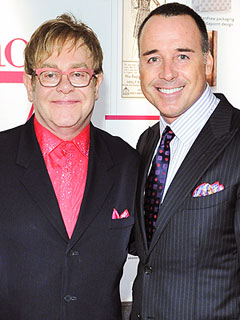TOKYO (Reuters) - Asian shares eked out modest gains Thursday, consolidating amid better-than-expected U.S. earnings but demand was capped by caution ahead of Chinese data on Friday.
The MSCI's broadest index of Asia-Pacific shares outside Japan <.miapj0000pus> added 0.1 percent, after falling in the past two sessions, pulled higher by a surge in Australian shares <.axjo>, which rose 1 percent to a 20-month high.
Australian employment surprisingly contracted by 5,500 in December, bolstering the odds for another interest rate cut. The prospect of further policy easing boosted local shares but sent the Australian dollar down to session lows of $1.0534 from $1.0560 before the data.
Analysts said the data came against a fairly positive global backdrop.
"There's a growing sentiment among investors that international risks have been significantly reduced, particularly after the U.S. made a start on its fiscal negotiations," said Ric Spooner, market strategist at CMC Markets in Sydney.
World stock markets ended flat on Wednesday with the banking sector rising as earnings from Goldman Sachs nearly tripled and JPMorgan Chase's fourth-quarter net income jumped 53 percent and earnings for 2012 set a record.
Investors will now turn to economic reports from China on Friday, including fourth-quarter GDP, December industrial output, retail sales and house price, which will offer clues on the health of Asia's biggest economy.
Data showing demand for new cars in recession-bound Europe fell to a 17-year low in 2012 reminded investors of the challenges facing the global economy, after the World Bank sharply cut its outlook for world growth this year to 2.4 percent from 3 percent, citing a slow recovery in developed nations.
YEN RESUMES WEAKNESS
The dollar and the euro regained ground against the yen, snapping two days of selling when investors took profits from these currencies' sharp and rapid rises against the Japanese currency since November.
Traders expect the yen to remain on a weakening trend amid expectations for bolder monetary easing measures from the Bank of Japan as part of the new government's push to drive Japan out of years of deflation and economic slump.
Japan's benchmark Nikkei average <.n225> inched up 0.2 percent, after tumbling 2.6 percent for its largest daily decline in eight months on Wednesday. The Nikkei hit a 32-month high on Tuesday as the yen's slump to multi-year lows against the dollar and the euro bolstered exporters on improving earnings outlook. <.t/>
The dollar was up 0.1 percent to 88.50 yen, off its peak since June 2010 of 89.67 touched on Monday, while the euro climbed 0.3 percent to 117.75 yen, after surging to its highest since May 2011 of 120.13 yen on Monday.
Anxiety about a possible protracted fight in Washington over raising the federal borrowing limit pushed the five-year cost to insure against a U.S. default up to 44 basis points on Wednesday, the highest since August 2011 during the first debt ceiling battle between U.S. President Barack Obama and Republican lawmakers.
The euro was up 0.1 percent to $1.3306 against the dollar, after reaching an 11-month high of $1.3404 on Monday.
COMMODITIES SEEN RISING
Reduced concerns over the euro zone debt problems, relatively more solid global economic fundamentals than last year and China's moderate recovery suggest there are buying opportunities for shares in cyclically dependant sectors and economies including Japan, Philip Poole, Head of Strategy at HSBC Global Asset Management, told a seminar in Tokyo this week.
"Recovery will feed through into 2013, but China won't go back to pre-crisis (of 2008) levels of growth of 10 percent," Poole said, adding that growth was likely to be 7-8 percent in 2013, a level investors now need to get used to.
"Cyclically sensitive sectors look relatively cheap in emerging countries and developed countries," while defensives were less attractive given their relative outperformance in 2012 under the more stressed financial environment, Poole said.
Another sector likely seen getting a boost from the reduced risk environment is commodities.
"Investment focus for 2013 is shifting to economically sensitive areas as global recovery takes place, boosting commodities prices," said Naohiro Niimura, a partner at research and consulting firm Market Risk Advisory.
The rally in platinum prices to 3-month highs this week, regaining its premium over gold for the first time since March 2012, is an indication of investors turning more proactive about taking risks, he said.
U.S. crude was down 0.2 percent at $94.05 a barrel while Brent was steady around $109.64.
(Additional reporting by Thuy Ong in Sydney; Editing by Shri Navaratnam)










